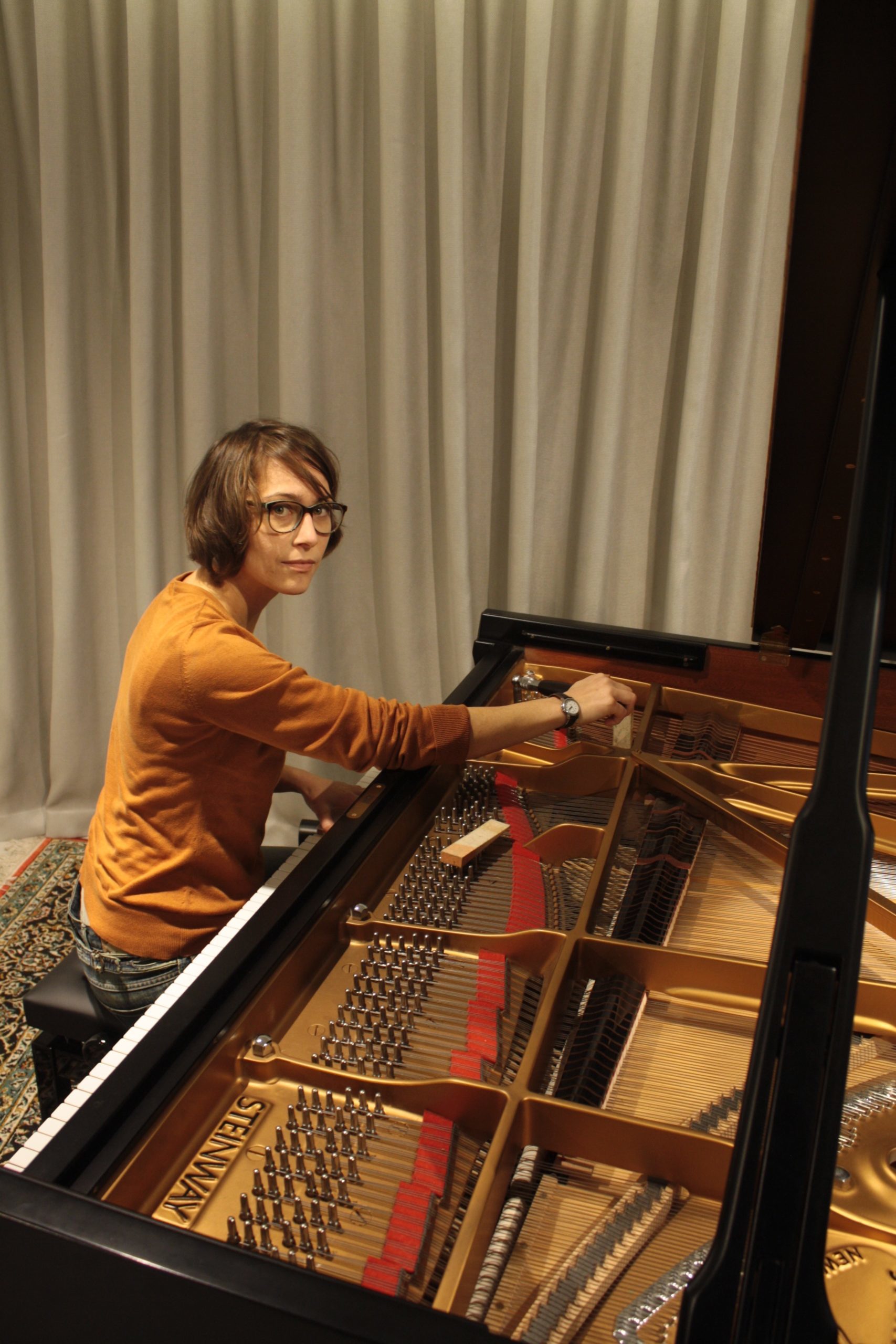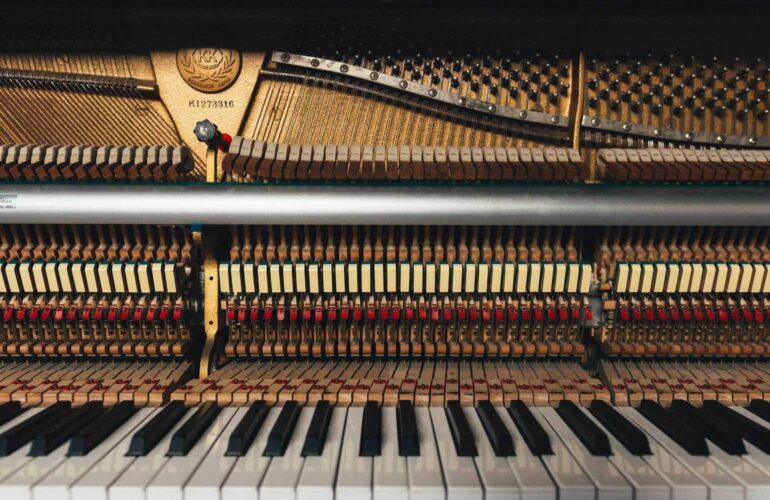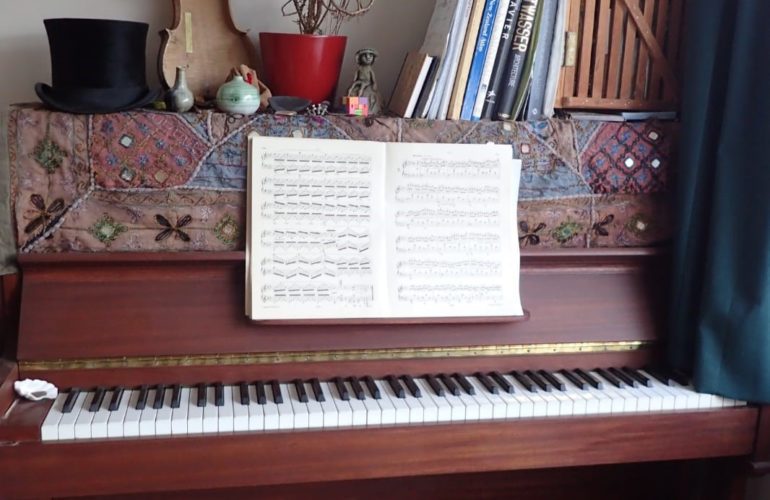How frequently are pianos usually tuned?
If you don’t play your piano very frequently but you want to keep it in good condition, the short answer is that you should think about getting it tuned every six months or so. In reality, a piano will need to be tuned somewhere between every three months and once a year, so if you need a quick answer, you can split the difference and aim for every six months. If you play frequently, or you are particularly concerned with the maintenance and quality of the piano (i.e., because it is an heirloom), then the answer can be a bit more in-depth and depends on a few more questions..
How quickly do pianos go out of tune?
Asking this question first is a good place to start because some pianos go out of tune quicker than others. Most of the time, we can tell how well a piano will keep its tune based on the quality of the pinblock. All the strings in a piano are fastened to tuning pins, and these pins are driven into the pinblock—a solid block made from laminated layers of hardwood. The pinblock is crucial because it holds the pins in place, allowing them to load tension. If the piano is older and goes out of tune very quickly, it could be a sign that the pinblock has become damaged or cracked and needs to be replaced.
The quality and age of the strings also influence how fast a piano will go out of tune, as strings lose their elasticity over time, holding less and less tension over the years.
This is to say that the character of your piano has a big role to play in its tuning. Older pianos may need to be tuned more frequently if they have aging parts, but it’s also true that brand new pianos with fresh strings tend to need frequent tuning until they “settle down” and the strings reach a point of equilibrium. A trained technician inspecting your piano in person will be able to tell you about the quirks your piano has that will impact how often it needs to be tuned.
What else causes pianos to go out of tune?
Once it’s in tune, why doesn’t it stay that way?
Besides the stretching of the strings over time, the ambient temperature and humidity of the air around the piano can cause the instrument’s tuning to shift noticeably. Pianos are made almost entirely out of wood and metal. Wood expands and contracts with the moisture in the air, and metal expands and contracts with temperature. Something as subtle as cold air-conditioning can be enough to make a piano suddenly go sharp because cold strings will contract, increasing the tension until they warm up again! Inversely, direct sunlight could heat a piano and cause it to go flat.
This is why we often recommend that pianos be placed closer to the interior of a home. Pianos near external windows or doors will need to be tuned much more frequently than once every six months, as the airflow will constantly be altering the temperature and humidity inside the instrument.
Does playing a piano make it go out of tune?
Put simply, yes, and this is partly why the frequency with which you play is the final major factor that we are talking about in this blog post. If you play all the time, you’ll want to tune more frequently. Playing doesn’t de-tune a piano quite as dramatically as some of the other factors above, but the point is that when you play regularly, your threshold for what sounds “in-tune enough” is a lot higher! For example, if you keep a piano as a family heirloom that your children play with, then you’ll want to keep the instrument tuned every 12 months or so, to keep the piano well-maintained.
On the other hand, if you use your piano to practice regularly or play with other musicians, keeping it in tune is much more important. Concert pianists will usually use a piano that has just been tuned before every performance! A lot of this has to do with personal preference, as some people are just more sensitive to pitch than others.
Keeping the piano in tune is very important for learning while young as well, and there’s a simple reason why. Unlike many other instruments with which you can directly control the pitch of the notes, you need to rely on the tuning of your piano to provide the right pitch. If it is even slightly out of tune, then when you play a C, for example, you will be slowly training your ear to hear a sharp or flat C as correct.
Do you need your piano tuned?
Regardless of whether your piano is played often, old, new, or lives near the door, it will likely need to be tuned at least once a year. The best way to find out is to have it tuned by a professional and listen to their recommendations on when the best time for a follow-up would be. As highly-experienced Auckland piano tuning specialists, we typically take the chance to examine all the factors above when performing a routine tuning, so you can rely on us to give you an accurate schedule if you want one. Talk to us today to find out more!



